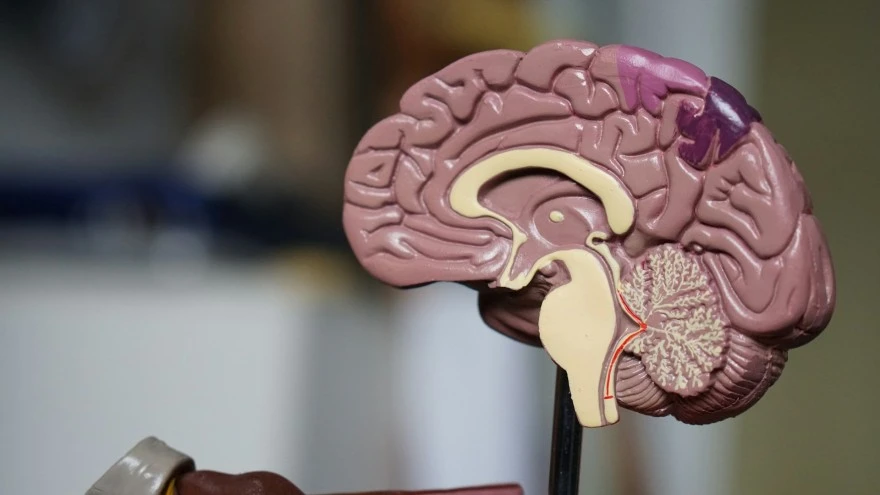Preventive Healthcare
Dementia: Everything You Need to Know

Table of Contents
Dementia is a disease that affects millions of people worldwide. With an ageing population, it's becoming more prevalent than ever. Whether you're caring for someone with the disease or simply want to educate yourself about its symptoms and treatment options, this comprehensive guide has everything you need to know. From early warning signs to coping strategies for caregivers, we'll delve deep into the world of dementia and provide you with all the information necessary to better understand this debilitating illness.
Different Types of Dementia
There are many different types of dementia. Each one can cause different symptoms. The most common type of dementia is Alzheimer’s disease. It accounts for 60-80% of all cases. Other types include vascular, Lewy body, frontotemporal, and mixed.
- Alzheimer’s Disease is the most common form of dementia. It typically affects people over the age of 65. It is a progressive disease. It leads to problems with memory, thinking, and behaviour. Symptoms usually develop slowly and get worse over time.
- Vascular Dementia is the second most common form. It occurs when there is damage to the brain’s blood vessels. This can cause problems with memory, thinking, and coordination. Symptoms usually develop suddenly after a stroke or mini-stroke.
- A Lewy body is a type of degenerative brain disease. It causes problems with thinking, movement, behaviour, and sleep. Symptoms can be similar to those of Alzheimer’s disease or Parkinson’s disease.
- Frontotemporal is a type of degenerative brain disease. It affects the frontal lobe of the brain. This area controls planning, personality, and social interactions. Symptoms can include changes in behaviour or personality, as well as problems with language and decision-making abilities.
Symptoms of Dementia
There are several symptoms associated with dementia. They can vary depending on the individual. However, some common symptoms are generally seen in people with dementia. These include:
- Memory Loss: This is one of the most common symptoms of dementia. It can include forgetting recent events, conversations, or people's names.
- Difficulty with Communication: People with dementia may have trouble finding the right words to say, or may repeat themselves. They may also become more withdrawn and less able to engage in conversation.
- Changes in Mood and Behaviour: People with dementia may experience mood swings or changes in their personalities. They may become more agitated or aggressive or may have difficulty controlling their emotions.
- Difficulty with Everyday Tasks: Simple tasks such as dressing or bathing can become difficult for people with dementia. They may also have difficulty remembering how to do things they once knew how to do, such as cooking or using the computer.
- Loss of Interest in Hobbies and Activities: People with dementia may lose interest in activities they once enjoyed. These could be reading, watching television, or going out with friends.
How is Dementia Diagnosed?
A diagnosis of dementia usually starts with a visit to your doctor. They will ask about your medical history and any concerns you have about your memory or thinking.
Your doctor may then carry out some tests, including:
- A Physical Examination – to check for any underlying health conditions that could be causing your symptoms.
- Neuropsychological Testing – to assess your memory, problem-solving and language skills.
- Imaging Scans – such as an MRI scan, to rule out other conditions or check for changes in the brain
- Blood tests – to check for vitamin deficiencies or thyroid problems that can sometimes cause similar symptoms. Check out Alzheimer's Disease Screening Profile Test at Metropolis Labs
If the cause of your symptoms is not immediately clear, you may be referred to a specialist for further assessment. They will often use the same tests as your doctor but may also carry out additional ones, such as a lumbar puncture (spinal tap) to rule out infections or cerebral angiography (a special X-ray of the blood vessels in your brain) to look for strokes.
Treatment for Dementia
- There is no one-size-fits-all approach to treating dementia, as the condition can vary greatly from person to person. However, some general principles can be followed when crafting a treatment plan.
- The first step is identifying the underlying cause of dementia, if possible. This can help guide the rest of the treatment plan, as different causes require different approaches.
- For example, if dementia is caused by an underlying medical condition, treating that condition may improve or even reverse the dementia symptoms.
- Once the cause of dementia has been identified, it is important to focus on managing the symptoms. This can involve a combination of medication, therapies, and lifestyle changes. Medications can be used to manage specific symptoms, such as depression or anxiety.
- Therapies can help with memory loss and communication difficulties. And lifestyle changes, such as exercising and eating a healthy diet, can help promote brain health and improve overall functioning.
It is also important to provide support for caregivers and loved ones. Dementia can be difficult to manage on one's own, and having a supportive network in place can make all the difference. There are many resources available to help caregivers cope with their loved one's condition.
Living with Dementia
It’s estimated that around 50 million people worldwide live with dementia. Dementia is a broad term that describes a decline in mental ability severe enough to interfere with daily life.
Dementia can be difficult to cope with, both for the person living with the condition and for their loved ones. There are, however, some things that can help make life easier for those living with dementia. Here are some tips:
Create a Routine and Stick to it as Much as Possible. This can help provide structure and stability on an otherwise unpredictable day.
Simplify Tasks and Break Them Down into Smaller Steps. This can make them more manageable and less overwhelming.
Encourage Social Interaction and involvement in activities that interest the person living with dementia. This can help reduce feelings of isolation and loneliness.
Be Patient and Understanding. Remember that the person living with dementia is not acting this way on purpose – it’s simply a symptom of the condition.
Conclusion
Dementia is a complex and challenging condition that can have a devastating impact on the lives of those affected. It is important to be as informed as possible when it comes to dementia so that you can understand how best to support someone with this condition, both practically and emotionally.
If someone you know has been ordered an MRI test as part of a diagnosis of dementia, you can rely on us at Metropolis Healthcare. Our state-of-the-art diagnostic labs across India guarantee quick and dependable results. Contact us today to learn more about our diagnostic services.
























